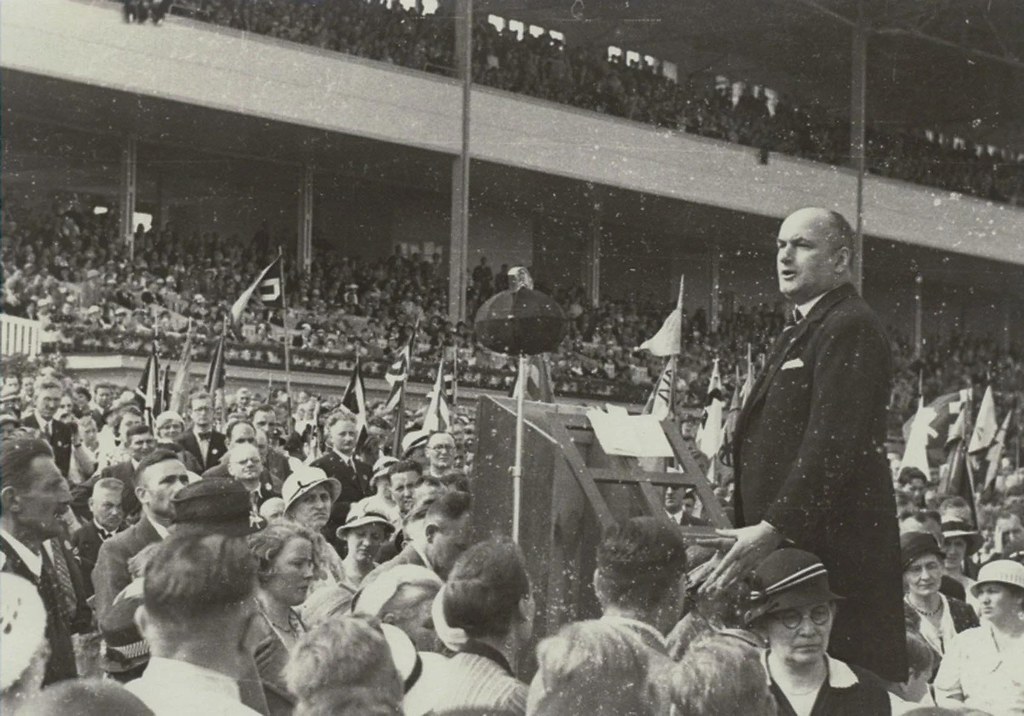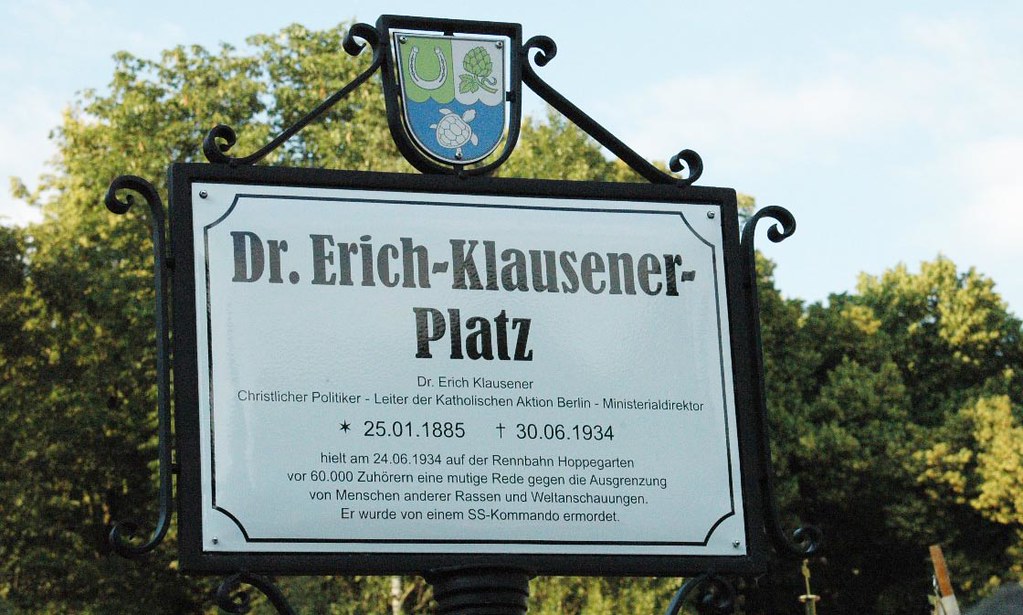The last tips of Erich Klausener, the first Catholic martyr assassinated by the nazis
Today the profession of politician is highly reviled, but in the world there have been and continue to be politicians who are admirable for their firmness and courage.
A Catholic politician who opposed communism and nazism
One of those politicians was the German Catholic Erich Klausener. He was born in Düsseldorf on January 25, 1885, into a devout Catholic family. He enlisted in the German Army as a volunteer, serving in the cavalry and rising to the rank of lieutenant. After During his military career, he received a doctorate in Law and Political Science, working as a civil servant in the administration. During World War I he re-enlisted in the German Army, this time serving in the infantry and being awarded the Iron Cross 1st class.

After the war, he returned to his post as a civil servant, where his religious convictions led him to promote the construction of maternity, tuberculosis, and child welfare centers. Ironically, his social concerns led to him being dubbed "red" by the German right. Faithful to his Catholic faith and his principles of Justice and Liberty, from his post as a senior official in the Prussian Ministry of the Interior, Klausener was a staunch opponent of both communism and national-socialism, the two totalitarian movements who were eroding the young German democracy.
Klausener played a very important role in the apostolate movement of Catholic Action, of which he was coordinator in the diocese of Berlin. From his position in that association, Klausener organized important meetings of the Catholic community, with tens of thousands of people, in addition to dedicating special attention to supporting charitable initiatives at a time when Germany was experiencing serious financial difficulties due to the crisis of 1929.

His last challenge to the nazis in front of 60,000 people
After the rise to power of Hitler and his National-Socialist German Workers Party (NSDAP), Klausener was retaliated by losing his position and being transferred to the Ministry of Transport. Despite this, he continued to publicly criticize the national-socialist ideology. Catholic Action continued its activity, with increasing difficulty, being one of the last redoubts of Catholic social militancy in Germany. Klausener continued to publicly express his fidelity to the Catholic Church, something that annoyed the nazis, who were promoting a discourse that was increasingly hostile to Catholicism.
On June 24, 1934, Klausener gave a speech before 60,000 Catholics in Hoppegarten. In an impromptu speech at that important Catholic Action rally, he reaffirmed his oath of fidelity to the Church and the Pope, his love for his country and also for humanity, and demanded the rights of Catholics to live their faith without being bothered by it. That Catholic demonstration was interpreted as a clear challenge to the Nazi regime, which was imposing its iron control over the entire German society. Klausener didn't know it yet, but that had been his last speech.

His murder for being considered "a dangerous Catholic"
A few days later, on June 30, 1934, during the so-called "Night of the Long Knives", Klausener was assassinated by the Gestapo, Hitler's political police. They killed him with a shot to the head, after which the Nazi leader Reinhard Heydrich ordered the murder to be disguised as a suicide. The Vatican's own newspaper, L'Osservatore Romano, described the costume chosen by the Nazis for this crime as "absurd". It was clear that the crime was related to the speech given by the Catholic Action leader a few days earlier. The reason Heydrich gave one of his subordinates for that assassination was that Klausener was "a dangerous Catholic".
The burial of Klausener's ashes was carried out with the sole assistance of his family circle in the Parish of Saint Matthias in Berlin, due to the fear that this crime had instilled among many German Catholics. In 1963 her urn with her ashes was transferred to the Maria Regina Martyrum Memorial Church in Berlin, built in honor of Catholic martyrs killed by the Nazis. Klausener was the first in a long list. It should be noted that both Germanys, the free and the communist, dedicated commemorative stamps to Klausener, and today there is a square in his honor in Berlin, the Klausenerplatz. Streets have also been named after him and schools in other German cities.

The last advice he left in writing
In one of those schools that bears his name remember the last tips written by Erich Klausener, which were found in a case after his death, advice that all politicians should take good note of:
"Be truthful in your actions
Never break a promise
Don't show false prestige
Come first - leave last
Have righteous anger, but never waste your anger!"
|
Don't miss the news and content that interest you. Receive the free daily newsletter in your email: Click here to subscribe |
- Most read
- The 'hole' without civil flights around Paris during the opening of the Olympic Games
- Spain vetoes the Russian frigate 'Shtandart', which intended to reach Vigo, in all its ports
- The interior of the Statue of Liberty torch and the sabotage that canceled its visits
- The ten oldest national flags in the world that are still in use today
- The BNG boasts of the support of a terrorist group and a dictatorship at a public event
- The Russian intelligence document that sparked a hoax about French troops
- A virtual tour of ancient Rome in full color, just as it was in its heyday

 ES
ES





Opina sobre esta entrada: